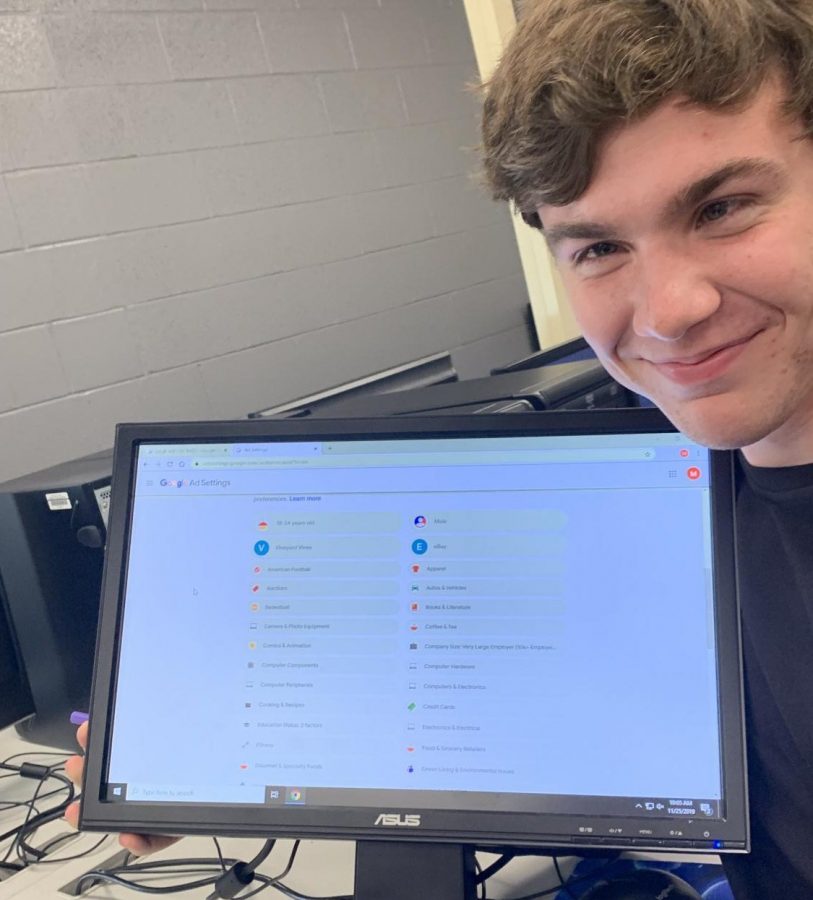
Darsh Balani
Senior Mitchell Strobbe opens up his Google Ad Personalization settings to see what the search engine thinks of him.
With gift-giving season approaching, many people will be buying products recommended through ad personalization.
Recently, there has been a social media outburst claiming smartphones and devices are listening to the user due to a viral Youtube video, where user Mitch Hollow tested out his phone by repeating the phrase “dog food” until it popped up in his Facebook advertisements.
This video seems authentic and meaningful to many viewers who do not know much about the topic. “When I first saw the video, I was shocked and immediately turned off Microphone settings in my phone,” said sophomore Will Fariman.
There are two problems with the video: the creation of the topic and the discussion if the video is staged. To think of this seemingly “random” idea, there is a good chance that Hollow heard it from someone else or looked up this idea previously on the internet.
There had also been a conspiracy before the video that phones were listening, meaning a video like the one Hollow posted would gain massive popularity, as it did. He could have very well staged his entire video for the fame.
To debunk this video, BBC ran a test which they proved no relation between specific, spoken phrases and recommended ads.
Some may argue that corporations are doing things way worse than listening from devices. The way ad personalization works is through 3rd party companies that use cookies and such to take all of the user’s data, including searched terms and history. It sells its information to large corporations such as Facebook or Google, so they can use the data to divide the user into subcategories such as age group, location, race and interests.
For just one user, the data accumulated by Google is the equivalent of at least a million Microsoft Word documents. Users can check what a search engine or social media platform perceives of them by downloading their own data from these sources.
“The fact that companies are selling my data to other larger corporations scares me” said Fairman, “But at the same time, I am the one putting the data out there”.
With these subgroups, users get grouped in specific demographics, such as male teenagers in Bettendorf who like basketball. The system attempts to recognize search patterns in this demographic and show ads based on these searches to the people in the demographic.
The main source of income for these search engines and social media sites is through advertisements. To maintain these free-to-use apps, quality advertisements are needed to appeal to each individual user. “I do not understand why there are so many people complaining about phones listening to us,” said junior Sean Mast, “almost every app has an option that users can click on to stop these companies from collecting additional data on you”.
